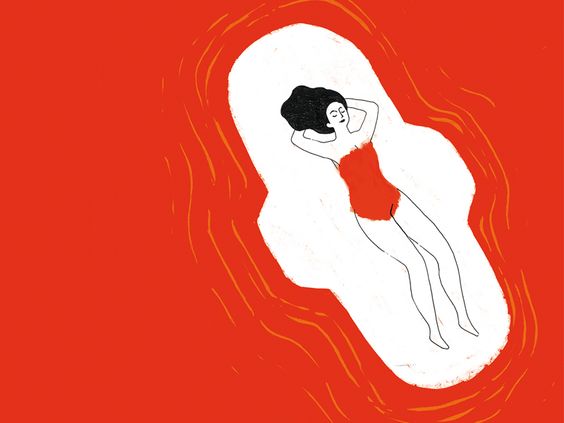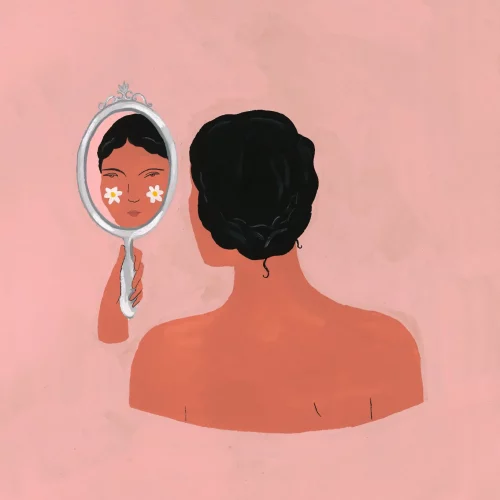Navigating life around our monthly visitor can be utterly exhausting. Whether it’s three days or, if we’re particularly unlucky, a whole week, that pesky cycle seems to dominate our existence. But let’s delve deeper into the reality of it all: the menstrual cycle isn’t just those few days of bleeding but an entire process that extends far beyond what meets the eye.
First, there are the weeks leading up to the main event. Energy levels plummet to an all-time low, moods twist and turn, often leaving us misunderstood and struggling to function in our daily lives. Add in the unusual cravings, fatigue, and acne breakouts. Then, when she finally arrives, we’re left cramping and fatigued, but at least the world doesn’t feel like it’s ending. Yet. After she bids us farewell, there’s a fleeting sense of normalcy for one to two weeks before the cycle resets, and our hormones once again take the reins, leading us on a merry dance of confusion.
Underfunded, under-researched, under-taught and under-diagnosed, women’s health so often seems defined by what we don’t know. This was the outlook I held onto for the longest time. It was the only narrative I knew until I visited a holistic doctor who opened my eyes to the intricacies of our sacred female bodies and the profound significance of each phase of the cycle. She taught me that being a woman is a beautiful journey that shouldn’t halt our lives but rather enrich them. According to her wisdom, there are specific foods suited to each phase of the cycle, and PMS isn’t some random affliction. It’s a manifestation of unresolved emotions begging for attention. Far from being crazy or moody, it’s our bodies’ way of communicating, urging us to rest, to release, and to nourish ourselves emotionally and physically. It’s okay to cry, to seek comfort, to indulge in a bit of chocolate.
In essence, she showed me that our menstrual cycle is not a burden but a gift—a monthly opportunity to listen to our bodies, to nurture ourselves, and to embrace the ebb and flow of womanhood with grace and understanding.
Looking back, it seems that during biology class, we were taught more about the anatomy of animals than our own. In a 2023 study, eight in 10 US teens said they were taught more about the biology of frogs than of the human female body in school— and many said there is still a serious lack of communication and education surrounding menstruation. More research on 125 women in the US found that 49.6% didn’t know the average number of days in a regular menstrual cycle, and 47.2% said they weren’t sure what ovulation is.
Simply put, the menstrual cycle is the term used to describe the process your body goes through each month in preparation for a potential pregnancy. A new cycle starts on the first day of a new period and lasts until the day before your next period. The average menstrual cycle is 28 days long, while your period is a big signifier that a new cycle has started, there are lots of other processes and hormonal changes that happen during your menstrual cycle, too.
Your menstrual cycle is driven by the rise and fall of your sex hormones (progesterone, estrogen, luteinizing hormone, and follicle-stimulating hormone). These natural chemicals are released at different points in your cycle to trigger different processes. They’re fundamental in supporting you as you have your period and potentially prepare for pregnancy. You can think of your cycle as two phases or parts.
Understanding the different menstrual cycle phases can help you get to know your body better— from when you’re most fertile to why you might feel a bit off in the days leading up to your period, so we decided to break it down for you below.
Follicular Phase: Pre-Ovulation
The first part of your cycle is known as your follicular phase. It starts on the first day of a new period and runs up until the day that you ovulate. If you have a 28-day cycle, this means the follicular phase could last around 14 days. While the length of your period is unique to you, it’s considered normal if your period lasts between two and seven days. During this phase, our bodies tend to crave and rely more on carbohydrates (makes oh-so-much-sense) for energy versus fat or protein, from the pastas to the pizzas, to the sourdoughs, and that one cupcake.
Ovulation
Your cycle can be split into two, but it can be helpful to think of ovulation as its own event. It’s a pretty big deal, after all. Ovulation describes the moment when one of your ovaries releases an egg. Your body produces a hormone called luteinizing hormone (LH), which triggers this process. If your cycle is around 28 days, then this happens around the midpoint or day 14.
Luteal Phase: Post-Ovulation
The luteal phase is the second part of a cycle, and involves preparing the uterus for pregnancy by thickening the uterine lining. It ends when your next period starts.
“During the luteal phase when your body is busy working to prepare for a potential pregnancy, you tend to use more fat for energy and protein is broken down at a higher rate. It’s important to focus on getting healthy fats from foods like fish, nuts, and avocado and have an extra protein-rich snack each day during this phase,” reads an article by Forbes Health.
“Some women may experience food cravings before or during their period. That’s because during the luteal ‘premenstrual’ phase, your body prepares for your next period by building and thickening the uterine lining.While you are navigating through food cravings, try to include foods that are nutrient-dense—add calcium-rich foods like tofu, white beans, and dark leafy greens. Add some magnesium-rich foods like dark chocolate, pumpkin seeds, and cashews. Definitely include more iron-rich foods—there are lots of plant sources to choose from,” the article continues.
Interestingly enough, in 2023, this phase of the cycle was labeled as the “ugly phase” on TikTok, as reported by Dazed. On TikTok, #lutealphase has gained over 85.4 million views, while variations like #lutealphasehormones and #lutealphaseworkouts also have views in the millions. With menstruation misinformation spreading like wildfire on the app, common symptoms of the luteal phase can include mood changes, tender breasts, bloating, breakouts and/or acne, and changes in appetite. “The luteal phase gets its name from the corpus luteum, which is the remaining egg that has not been fertilized by a sperm and is producing progesterone, preparing for a pregnancy. But when a pregnancy doesn’t happen, it shrivels up and disappears,” explains Alexandra Dryer, MD, Obstetrics and Gynecology at NYU Langone Health. “Because there is that hormone fluctuation, that’s where this description of the ‘ugly phase’ of the menstrual cycle comes from – given that progesterone produces symptoms that people are sometimes unhappy with, like bloating,” she adds.
As women, it’s crucial that we understand why we experience certain changes throughout each month and learn to navigate them with grace. Despite the challenges and emotional ups and downs, our bodies are designed to go through these phases. The key is to adjust our lifestyles accordingly, embracing each stage of the menstrual cycle.
For further insight into all things related to female anatomy, India Rakusen’s podcast, “28ish Days Later,” offers a wealth of information. Inspired by her own journey towards pregnancy, Rakusen embarked on a mission to educate herself about her reproductive cycle. The podcast provides a forensic, day-by-day exploration of how the menstrual cycle impacts our lives, spanning roughly 28 days.
Rakusen delves into the effects of hormones such as high-energy estrogen and progesterone, likening the latter to the “Wednesday Addams” of hormones. She investigates the “data gap” in women’s health, explores menstrual tracking apps and biohacking in sport, and conducts interviews, including with the first trans man to front a period campaign. The podcast offers a lively, accessible, and highly informative perspective on the subject matter. Additionally, Rakusen engages in insightful conversations, such as with Dr. Jackie Maybin from the University of Edinburgh, discussing the effects of hormonal contraceptive pills on our brains.









